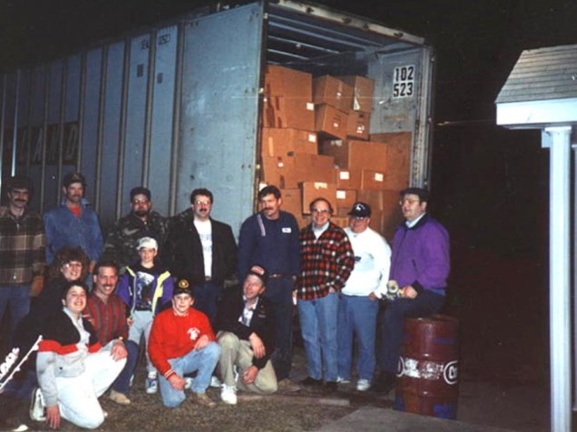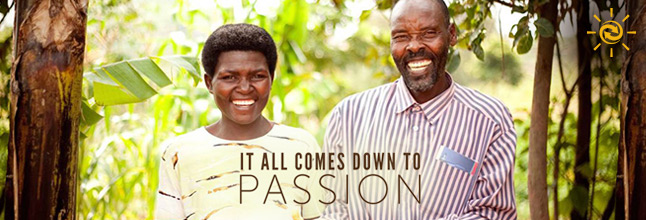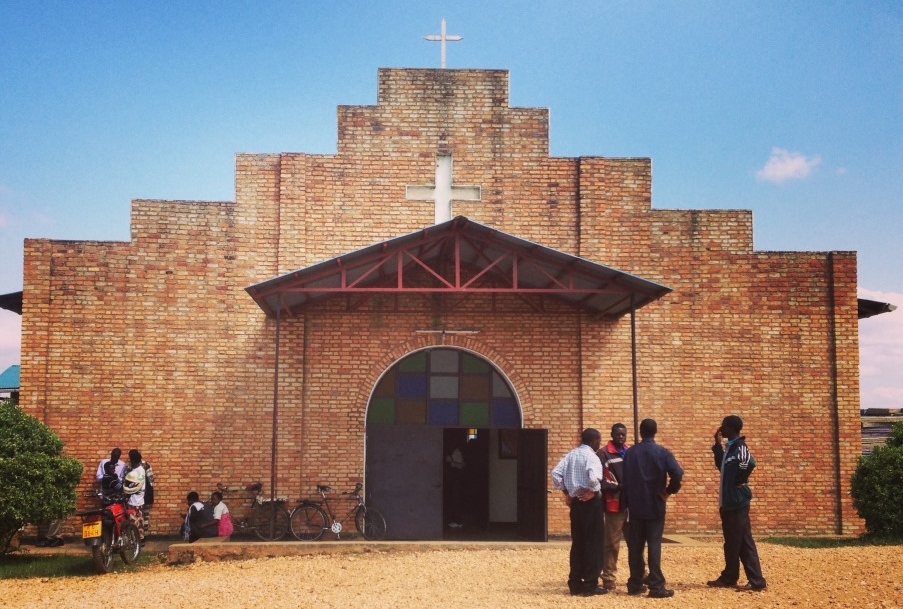In more than 20 years of pursuing excellence in poverty alleviation, failure has been one of the most effective forces for improving our work. We shared the following stories of missteps in a live webcast this week—not to paint them in a triumphal light or to trivialize them—but to practice transparency and share candidly with others, knowing God’s “power is made perfect in [our] weakness.” Continue Reading…
Archives For lessons
HOPE Intl
HOPE Intl
Microfinance Staff / Travelsby Christine Baingana, CEO of Urwego Bank
As the CEO of Urwego Bank, the largest microfinance institution in the HOPE network—and in the country of Rwanda—Christine Baingana shares what she’s learning about leadership while leading a team of over 300 staff.
I first learned of HOPE International after reconnecting with Peter Greer, HOPE’s president and CEO, while I was in graduate school. I had met Peter in the early 2000s while I was working for a large commercial bank in my home country of Rwanda and he was serving as the managing director of Urwego Bank. As we reconnected, Peter shared about the work he was doing through HOPE International—and asked if I wanted to join him.
In 2010, I joined the HOPE International team as the savings and credit association (SCA) specialist, later going on to serve as the Africa SCA regional director. When HOPE became a majority stakeholder in Urwego Bank in 2016, I was asked to step into the role of CEO. Having been on the board for several years, I knew that this would be a challenging time to lead the organization. I felt unqualified to lead such a large team through such a major transition.
But as I sought counsel from others, they reminded me to think of those Urwego could serve, men and women who have not had many of the privileges and advantages that I have. As I took my eyes off of myself and focused on them, I chose to say yes to this opportunity. It’s exciting to know we are changing lives for the Kingdom, that men and women who come to Urwego for a small loan, or to find a safe place to save, will have the opportunity to overcome poverty and experience a closer relationship with the Lord and their community members.
Here are five of the most valuable lessons I’ve learned on this leadership journey:
Becky Torre
Becky Torre
NewsPeter Greer
Peter Greer
NewsReposted from www.peterkgreer.com.
In the last few weeks, I’ve hit my 10-year anniversary serving with HOPE.
Incredibly grateful, I’m still overwhelmed by the fact that I’ve had the opportunity to serve at such an incredible organization. With such an extraordinary team, I continue to learn every day.
But yesterday, I had the chance to reflect on some things I’ve learned in the past few years:
- When hiring … choose wisely. Jim Collins was right—get the right people on the bus, and good things happen.
- Culture matters. When you have clarity of culture, you don’t have to spend time worrying about so many other issues. A clear culture guides behavior more than any set of rules or policies. Articulating HOPE’s PASSION statement gave clarity to our culture we wanted to create: PASSION.
- Care for families, not just the employee. My friend Steve said, “If you do something nice to me, I’ll remember you … But if you do something nice for my family, I’ll never forget you.” An organization that supports families—whether that’s providing meals or helping people move or creating flexible work arrangements—doesn’t go unnoticed.
- It’s always the small things. While having a great benefits package is ideal, it’s the small things each day that matter most. Are employees always on the lookout for ways to tangibly care for each other?
- Simplify. And then repeat. Repeat. Repeat. Organizational whiplash, where leaders constantly change priorities and goals, undermines progress. Focusing on core elements and goals, and then reinforcing through repetition, helps an organization move forward in a unified manner. Focus and repetition lead to excellence.
- Measure what matters—and celebrate often. “What gets measured gets done.” Beyond measurement, healthy organizations pause to celebrate together. A highlight of my week is when we celebrate individuals exhibiting our culture of PASSION during staff meetings.
- Asking the right questions matters more than getting the right answers. The people who have had the greatest impact at HOPE are the ones who know how to ask questions and get to the heart of the problem first. How could you frame every agenda item at meetings with the question you are trying to answer?
- Commit to continual learning. Organizational impact is tied to staff members’ constant desire for continual learning. Acknowledging there is always more to learn in the pursuit of progress, we pursue excellence together.
- Be willing to change your role. Ten years ago, I did vastly different things at HOPE than I do today. Don’t hold tightly to titles or roles or assignments. Be willing to ask, What can I do right now which will best advance my organization’s mission?
- Never forget—every good thing is a gift from God. Whatever good happens, we must remember the Giver of these gifts. At HOPE, we have a very long list of reasons to thank God.
On the list, I intentionally didn’t include the technical lessons learned about enterprise risk management, new financial products to impact poverty, credible and cost effective monitoring and evaluation, internal audit … because I believe these issues seem to be solved when you get the people and culture right.
To staff, friends, and supporters, thank you for the past 10 years—they have been a gift.
Matthew Rohrs
Matthew Rohrs
Spiritual IntegrationKeeping Christ central
A weekly series from HOPE’s director of spiritual integration
It happens all the time. I have the privilege of meeting someone new, and some version of the following conversation occurs.
Me: “Hi, my name is Matthew.”
New Friend: “Hi, Matthew, my name is _______________.” Various types of small talk take place, inevitably leading to: “What do you do for a living?”
Me: “I serve as director of spiritual integration at HOPE International.”
New Friend: Brow furrows, eyes begin to squint, and head tilts a few degrees to the left (I’m not sure why it’s usually left). “Um, so what does that actually mean?”
With few exceptions, introducing the concept of spiritual integration (S.I.) at HOPE to someone new to the organization elicits both confusion and curiosity. This is understandable, since “spiritual integration” is not a department or function in most organizations. Additionally, our western culture naturally divides life into sacred vs. secular activities or physical vs. spiritual realities. This makes the idea of spiritual integration somewhat foreign and potentially counter-intuitive.





















